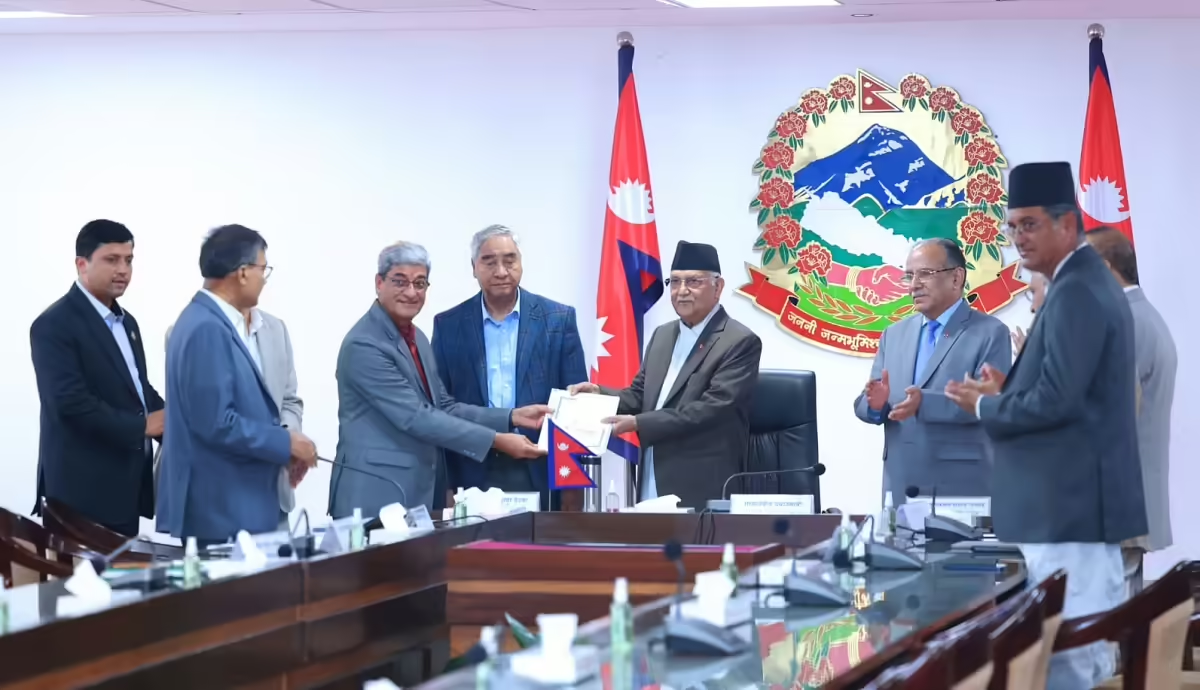KATHMANDU: A report detailing the understanding reached by the task force on finalizing transitional justice in accordance with the Comprehensive Peace Accord (CPA) was presented to Nepal’s top political leaders today.
The CPA was originally signed between the Government of Nepal and the then-rebelling CPN (Maoist).
The task force handed over its findings to Prime Minister KP Sharma Oli, Nepali Congress President Sher Bahadur Deuba, and CPN (Maoist Centre) Chair Pushpa Kamal Dahal ‘Prachanda’ during a ceremony at the Office of the Prime Minister and Council of Ministers at Singha Durbar.
The report was presented by task force members: Home Minister and Nepali Congress leader Ramesh Lekhak, UML Chief Whip Mahesh Kumar Bartaula, and Maoist Centre leader Janardan Sharma.
The task force reached a critical agreement on August 1, addressing contentious issues such as the interpretation of conflict-era incidents and the provision of relief, compensation, reparation, and justice for victims.
The handover ceremony was attended by prominent figures including PM Oli, NC President Deuba, UML General Secretary Shankar Pokhrel, PM’s Chief Political Advisor Bishnu Rimal, Attorney General Ramesh Badal, and Government Chief Secretary Liladevi Gadtaula, among other officials.
The major political parties had previously reached a four-point understanding aimed at resolving transitional justice issues, drawing significant interest both nationally and internationally.
According to the agreement, intentional or arbitrary killings will be categorized as murder. Families of security personnel who lost their lives during the conflict will receive relief, compensation, and reparation.
Similar provisions are planned for combatants deemed disqualified.
Additionally, if the victim’s side does not consent to a conflict-era case, it will be recommended to the Attorney General.
These cases will now be adjudicated based on the existing principles of criminal justice, in alignment with transitional justice standards.
The task force underscored that the agreement adheres to transitional justice principles and meets both national and international standards, with a focus on addressing victims’ concerns.
The agreement aims to unify the country by ensuring justice for victims and accountability for perpetrators, thus preventing future conflicts.
This accord among the major political parties represents a significant step toward resolving the longstanding backlog in the peace process.
After 17 years since the signing of the CPA, this agreement marks a pivotal advancement in finalizing the peace process. Despite previous attempts to establish transitional justice mechanisms, political differences had stalled progress, making this agreement a notable achievement.









Comment